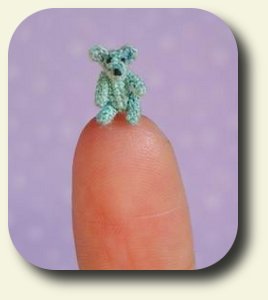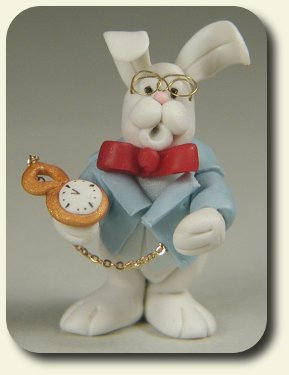
November 2010, Issue 10
Animals and Bears
Page 76
Continue Animals and Bears

The second most-used material is Alpaca fleece. This amazing fleece is lightweight, soft, durable and silky. Alpaca is also lanolin free, which means that it is hypoallergenic and a perfect medium to use for furring. And, alpaca has a look and feel that most closely resembles actual animal fur and hair, as if it needed another reason to be top choice. It has many applications and is perfect for both smaller animals, such as the rascally raccoons and mischievous mice that Kristy Taylor creates and larger sculpts like kittens, dogs, and polar bears.

Some artists use viscose fiber, which is a synthetic fiber with a cellulose base. Aleah Klay finds viscose easy to work and thin enough for the smallest animal sculpts. This fiber is most commonly known as Rayon.
Natural animal fur is sometimes used for specific applications. Although not common, there are times when nothing less will do. IGMA Fellow Kerri Pajutee finds polar bear hair useful for making whiskers and also uses Merino wool, while Lucy Maloney furs some of her work for commission pieces using pet hair that her clients supply.
Flocking is actually fine cut fibers that when applied properly give the final piece a smooth, yet soft, texture. It can sometimes be used on animals or bears that have shorter coats. For example, a lion may have a flocked body and a mane made using Alpaca fibers. Flocking can be cut from thin threads, but it is a tedious task. Thankfully there are many commercially made flocks available in a rainbow of colors. It's easy to work with, gives a nice smooth, soft texture and is relatively inexpensive. The only caveat associated with its use is that the slightest breeze can blow around the flocking, so workspaces should be kept away from drafts.
Custom Dolls, Houses & Miniatures / CDHM







